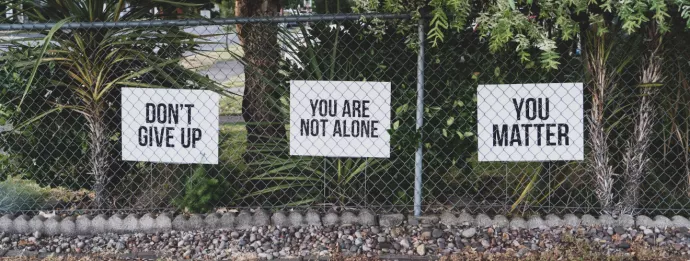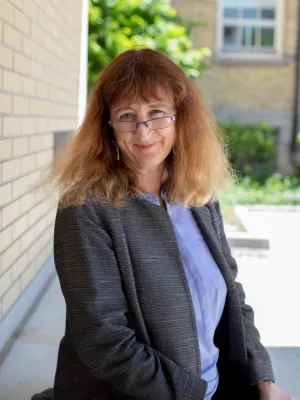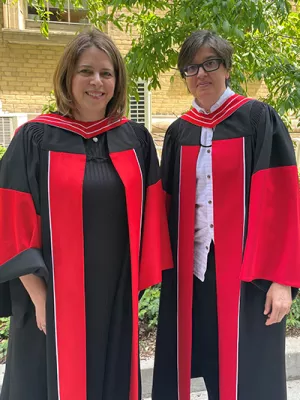
Barriers to pandemic recovery for women and youth: U of T researchers explore sustainable revival of cities
Cities and urban centers are areas of profound economic and social activity and are sensitive to global shifts in health and politics. The COVID-19 pandemic highlighted preexisting institutional, environmental, and socioeconomic inequities related to the long-term recovery and stability of certain demographics, including women and youth. Asking questions like ‘what makes a city more resistant to pandemic outbreaks?’ or ‘how does the design of cities influence access during times of crises?’ is necessary if the world is to respond positively and constructively to future pandemics.
The Government of Canada’s New Frontiers in Research Fund (NFRF) recently awarded $500,000 to researchers from the University of Toronto’s School of Cities and Institute of Management and Innovation (IMI) – along with colleagues at the World Bank, University College London, and University of Kentucky – to examine demographic and geographically-specific barriers to the health and employment of youth and women, and explore how the organization of cities promotes — or fails to promote — sustainable pandemic recovery.

Led by Karen Chapple from the School of Cities (Lead PI) and Shauna Brail and Tara Vinodrai (Co-PIs) from IMI, the study ‘Recovery for All? Long-Term Pandemic Impacts on Employment and Health of Women and Youth’ will assess recovery patterns in Toronto, London, and Bogota and identify evidence-based policy changes to ensure greater health and employment outcomes for women and youth.
The study will be framed around the relevant United Nations Sustainability Development Goals (SDGs), as the world tries to regain momentum towards realizing them. A fair and sustainable global recovery depends on the ability of our cities to improve opportunities for women and youth in the labour force and to reduce health inequities – efforts embodied in, for instance, SDG-3 (promoting health and well-being), SDG-5 (empowering women) and SDG-11(supporting inclusive and resilient cities). IMI’s Shauna Brail says of this emphasis on multiple SDGs “most of my work relates to SDG-11, on supporting inclusive and resilient cities, but we must think about all the other aspects as well. What we learned from Covid is that we live in an ecosystem – everything is connected!”
The researchers will gather data from interviews and cellphone activity, and will connect local activity patterns (i.e., individual working, shopping, health care visits etc.) to health and labour market outcomes. Professor Chapple is an expert in analyzing mobile activity data in Covid-related research, and is the lead in an ongoing study of economic recovery in North American cities based on cellphone use. Chapple and Co-PIs Brail and Vinodrai share extensive experience in coordinating with policymakers and civic leaders to understand how decision-making can be changed to better serve the needs of vulnerable urban populations, and these three leads aim to develop fruitful interventions that will alleviate the negative impacts of health crises as cities emerge from pandemics and other disruptions.

Brail is excited to bring IMI’s expertise to this important work. She says that “I am fascinated by what recovery looks like, and by where recovery meets or exceeds where we were pre-pandemic.” Brail’s personal experiences of having Covid in a context where she knew her family was cared for and she could continue to provide – and of experiencing a family health crisis unrelated to Covid but during which health care was nonetheless accessible – confirmed her understanding that individual experiences and recoveries in pandemics are shaped by resources, policies, and the demographic one falls into – realizations that deeply informed Brail’s decision to join this project. Everyone at IMI is excited to embark on this study, which will explore the intersectional nature of lived experiences for women and youth; gain a better understanding of how cities and their policies allow disadvantages to prevail; and, ultimately, contribute to the cultivation of a brighter future for cities, women, and youth.
